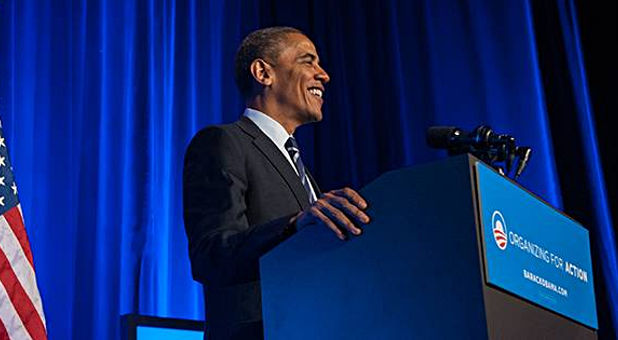Samuel Rodriguez Sounds Off on Obama’s Controversial Cuba Shift
Share:
After over 50 years of a painful embargo, President Obama on Thursday set out to change America’s relationship with the communist nation.
“We are recognizing the struggle and sacrifice of the Cuban people, both in the U.S. and in Cuba, and ending an outdated approach that has failed to advance U.S. interests for decades. In doing so, we will begin to normalize relations between our two countries,” Obama said. “I was born in 1961, just over two years after Fidel Castro took power in Cuba, and just as the U.S. severed diplomatic relations with that country.”
Obama has instructed Secretary of State John Kerry to immediately begin discussions with Cuba to re-establish diplomatic relations that have been severed since 1961. Going forward, Obama plans to re-establish an embassy in Havana, and high-ranking officials will once again visit Cuba.
“Second, I have also instructed Secretary Kerry to review Cuba’s designation as a State Sponsor of Terrorism—a review guided by the facts and the law,” Obama said. “At a time when we are focused on threats from ISIL and al Qaeda, a nation that meets our conditions and renounces terrorism should not face such a sanction.”
Third, Obama is moving increase travel, commerce and the flow of information to—and from—and Cuba. Obama says these steps will make it easier for Americans to travel to Cuba and for Americans to conduct authorized trade with Cuba, including exports of food, medicine and medical products to Cuba.
He continues, “And they will facilitate increased telecommunications connections between our two countries: American businesses will be able to sell goods that enable Cubans to communicate with the United States and other countries.”
As a Christian, the normalization of diplomatic relations with Cuba prompts both concern and hopeful expectations for Samuel Rodriguez, president of the National Hispanic Leadership Council, the largest Hispanic Christian organization.
“First, I am concerned that normalizing diplomatic ties without addressing the horrendous human rights record of the Castro regime serves as a defacto endorsement of one of the most oppressive regimes in recent history,” Rodriguez says.
As a result of Castro’s totalitarian rule, he notes, millions live in poverty and thousands lie in prisons while others lost their lives. What’s more, he continues, people live with their God given rights held hostage to governmental persecution.
Rodriguez concludes, “Nevertheless, if this controversial step results in the alleviation of hunger and opens the door for God-given freedoms to flourish, then I pray that this decision will serve as a prophetic step in unleashing the church of Jesus to be the church both inside and outside of the island nation addressing the spiritual and physical needs of the Cuban people.”
Share:















































